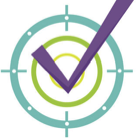10 Major Project Risks Your Team Can Avoid
by Adele Sommers
Does your organization
see every possibility as
a “must-win” project, even when it’s
a poor fit for your in-house talents? If so, this is
one of several viewpoints that can blind your company
to potential problems ahead.
In Part
1 of this series, we explored how to recognize six
common project traps. In this article, we’ll review 10 major mistakes to avoid (or risks that you should flag)
when choosing, estimating, and staffing your projects.
First,
it’s important to recognize that your organizational
culture sets the tone for how you approach projects.
For example,
- Does your
company always expect people to do more for
less?
- Does management
routinely insist on or agree to unworkable schedules?
- Are team
members encouraged to underestimate their realistic
efforts?
If so, these are signs that your organization may have
a “must-win-at-all-costs” view of projects.
You may want to consider how idealistic, impractical
expectations could set the stage for project failure.
In
any case, if your team faces challenges with project
budgets, schedule, quality, or features, try asking
these 10 questions the next time you’re considering
a project.
1. Is the project non-compelling or a bad fit for the team?
 A bad fit for your team or organization means that the project doesn’t fall within the general professional or technical arenas in which your team has expertise or achievements. A bad fit for your team or organization means that the project doesn’t fall within the general professional or technical arenas in which your team has expertise or achievements.
Note that if you normally engage subject matter experts who would supply the skill sets you need, this is not as great of a concern. But by taking on projects that are squarely outside of your ballpark, you could be walking a perilous tightrope.
2. Will the project scope entail operating in unfamiliar territory?
 Even if it’s a reasonable fit, if a project involves requirements that your team hasn’t worked with before, you could be overly optimistic in assuming everyone can come up to speed quickly enough to be successful on the project. Even if it’s a reasonable fit, if a project involves requirements that your team hasn’t worked with before, you could be overly optimistic in assuming everyone can come up to speed quickly enough to be successful on the project.
Instead of simply rolling the dice and hoping for the best, you may need to seek outside expertise, though this can introduce its own risks (see #6–7 below).
3. Are the features or functions of what you’ll be delivering complex?
 A project that requires many complicated features or functions to interact correctly vastly increases the potential for problems. A project that requires many complicated features or functions to interact correctly vastly increases the potential for problems.
To reduce the degree of risk, you could seek an agreement to phase in and test those complex features over time. Another approach would be to negotiate a reduction in the number or types of features to be completed.
4. Are the requirements pitted against an aggressive schedule?
 Time limits of some sort exist on almost every project, and drive nearly every other project expectation. So, will there be enough time to implement the requested features at the desired quality level? Time limits of some sort exist on almost every project, and drive nearly every other project expectation. So, will there be enough time to implement the requested features at the desired quality level?
If not, you may want to negotiate a longer schedule, agree to reduce the requirements, or phase in some features later. You could bring in more people, although that will involve more coordination and could complicate the handoffs.
5. Are too few personnel and resources available for the project?
 Project managers routinely miss sleep at night over what would happen if their key project members were to leave. Or if the funding or resources were chopped or significantly delayed. In those cases, achieving project targets could be impossible! Project managers routinely miss sleep at night over what would happen if their key project members were to leave. Or if the funding or resources were chopped or significantly delayed. In those cases, achieving project targets could be impossible!
It’s one thing to have snafus occur later in the effort, but it’s another to start off unrealistically. That’s why it’s vital to avoid underestimating your needs at the beginning of the effort.
6. Will coordination with many different collaborators be needed?
 Involving many project personnel means complex handoffs. If your project will include client or third party collaborators, how will all of those contributors interact? Involving many project personnel means complex handoffs. If your project will include client or third party collaborators, how will all of those contributors interact?
For example, should all of those individuals remain in direct communication with one another, so that everyone talks to everyone else? Or should each group assign a single point of contact to act as a spokesperson? Also consider the division of work, and each group’s responsibilities to the others.
7. Are the primary collaborators unfamiliar to the project team?
 If it does become necessary to recruit new contributors, will you be able to verify whether they can all do the job? Do you have a protocol in place for vetting people effectively? If it does become necessary to recruit new contributors, will you be able to verify whether they can all do the job? Do you have a protocol in place for vetting people effectively?
If the unfamiliar parties have stretched the truth about their capabilities, giving you the impression that they can perform more proficiently than they’re capable of, you may be in for an unpleasant surprise. So, if there’s a way to have them prove themselves in advance, that’s ideal — or else come up with a contingency plan!
8. Are project team members discouraged from raising concerns?
 Before and after a project starts, your team members may identify all sorts of challenges. Do you want contributors to raise red flags when they see potential problems, or do you prefer that everyone keep quiet, maintain a stiff upper lip, and work 24/7, if needed, to resolve them? Before and after a project starts, your team members may identify all sorts of challenges. Do you want contributors to raise red flags when they see potential problems, or do you prefer that everyone keep quiet, maintain a stiff upper lip, and work 24/7, if needed, to resolve them?
The team culture will determine whether the members verbalize and systematically address the many pitfalls that can appear along the way, or whether they will resort to ignoring those problems and pointing fingers at others.
9. Are there insufficient review and test cycles in the schedule?
 Allocating enough time for reviews and test cycles frequently presents a dilemma. Those activities are often treated as an afterthought, with not nearly enough budget, schedule, or resources provided to prove out the deliverables successfully. Allocating enough time for reviews and test cycles frequently presents a dilemma. Those activities are often treated as an afterthought, with not nearly enough budget, schedule, or resources provided to prove out the deliverables successfully.
Regardless of your initial planning, if project delays begin to accumulate, what will people want to cut? Can you afford to reduce reviews and testing and still deliver a quality result?
10. Are there no standard protocols for managing scope changes?
 When the inevitable add-on requests materialize, consider how they’ll affect the project. When the inevitable add-on requests materialize, consider how they’ll affect the project.
Unless you have a mechanism, such as a formal project change request that you can use to adjust the official budget and time frame, you’ll always be at risk for cost and schedule overruns.
That’s why it’s so critical to hold the line on the scope and insist on a documented negotiation involving all of the key stakeholders when anyone proposes changes.
In conclusion, if you answered “yes” to one or more of the above questions, it means that each represents an area of risk that you’ll need to mitigate to ensure project success. Either create a workable plan for managing those risks, or consider whether pursuing the project is truly in the best interests of your organization.
Copyright 2021 Adele Sommers
|


